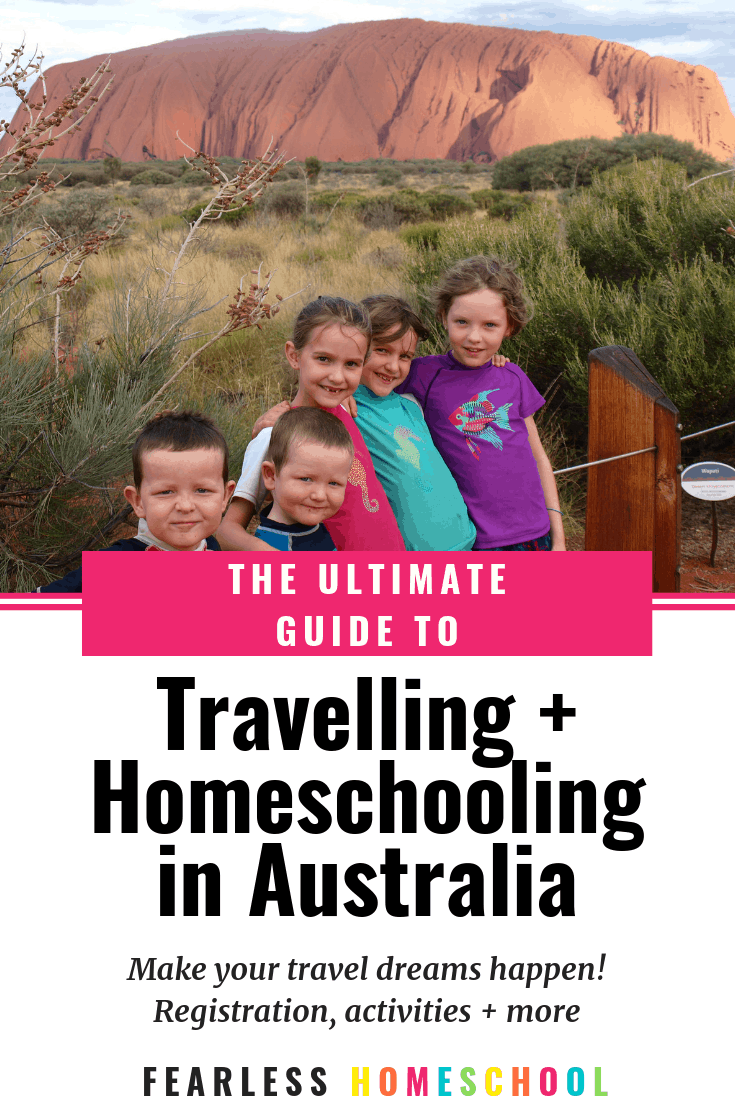
So you want to travel Australia, to go bush and outback, to take your family to all the wonderful places that our country has to offer.
You’ve made decisions regarding your route, must-see landmarks, and finances, and can debate the merits of camper trailers vs. caravans for hours.
There’s just one major stumbling block – the children’s education.
People tell you what a wonderful educational opportunity it will be for the children, and that they’ll learn so much, and you’re sure they’re right – but it still feels like a major undertaking. For six months, or a year, or maybe even more, you’re going to be the one providing their education.
I’m here to tell you that you’ll be just fine. We’ve homeschooled our five children from the start, and we’ve travelled on and off for their entire lives.
My three girls started university at 17 so a travelling homeschooling life didn’t hold them back at all.
Homeschooling is fantastic, and when you’re travelling it’s so easy – our main problem has been picking and choosing the best opportunities from a flood!
For homeschooling while travelling, you have three options – maintaining enrolment at their school, distance education, or homeschooling.
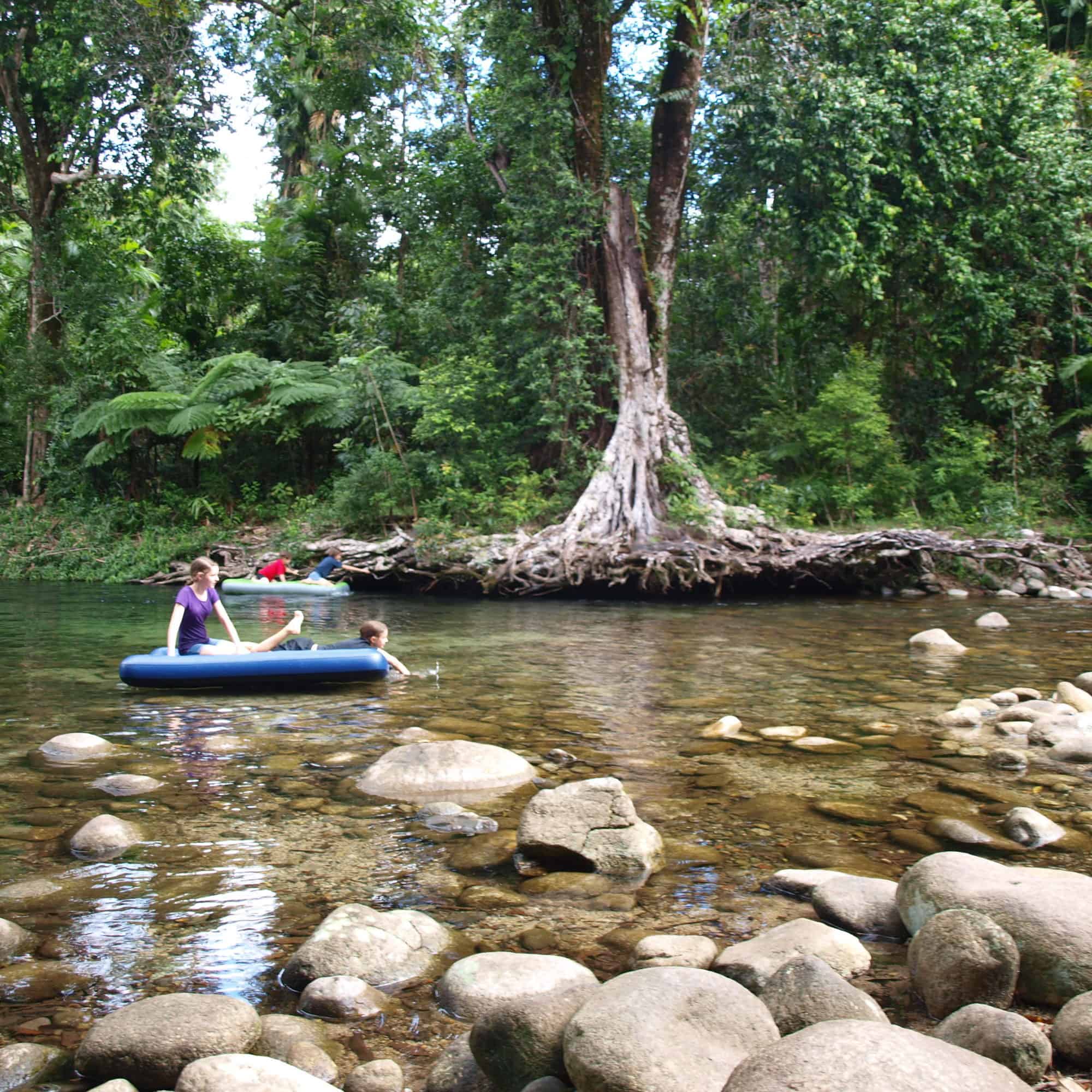
Travelling while maintaining enrollment at your child’s school
This can be a fantastic, seamless option. The school keeps your child enrolled, gives them an exemption from attending, and usually provides you with some schoolwork to do while you’re away. For many I’ve met, keeping a journal and doing some basic maths work is all they’re given (anyone else find it worrying that this is enough to replace 3-6 months of schoolwork?!). Scroll down and read the homeschooling section for a comprehensive guide to learning on the road.
For those with no long-term interest in homeschooling it’s probably the best option – IF it’s available. It depends on state legislation and the attitude of the school itself – while some schools will send you off with excitement and congratulations, some schools will just not do it.
If they won’t or can’t, then it’s onto the other options.
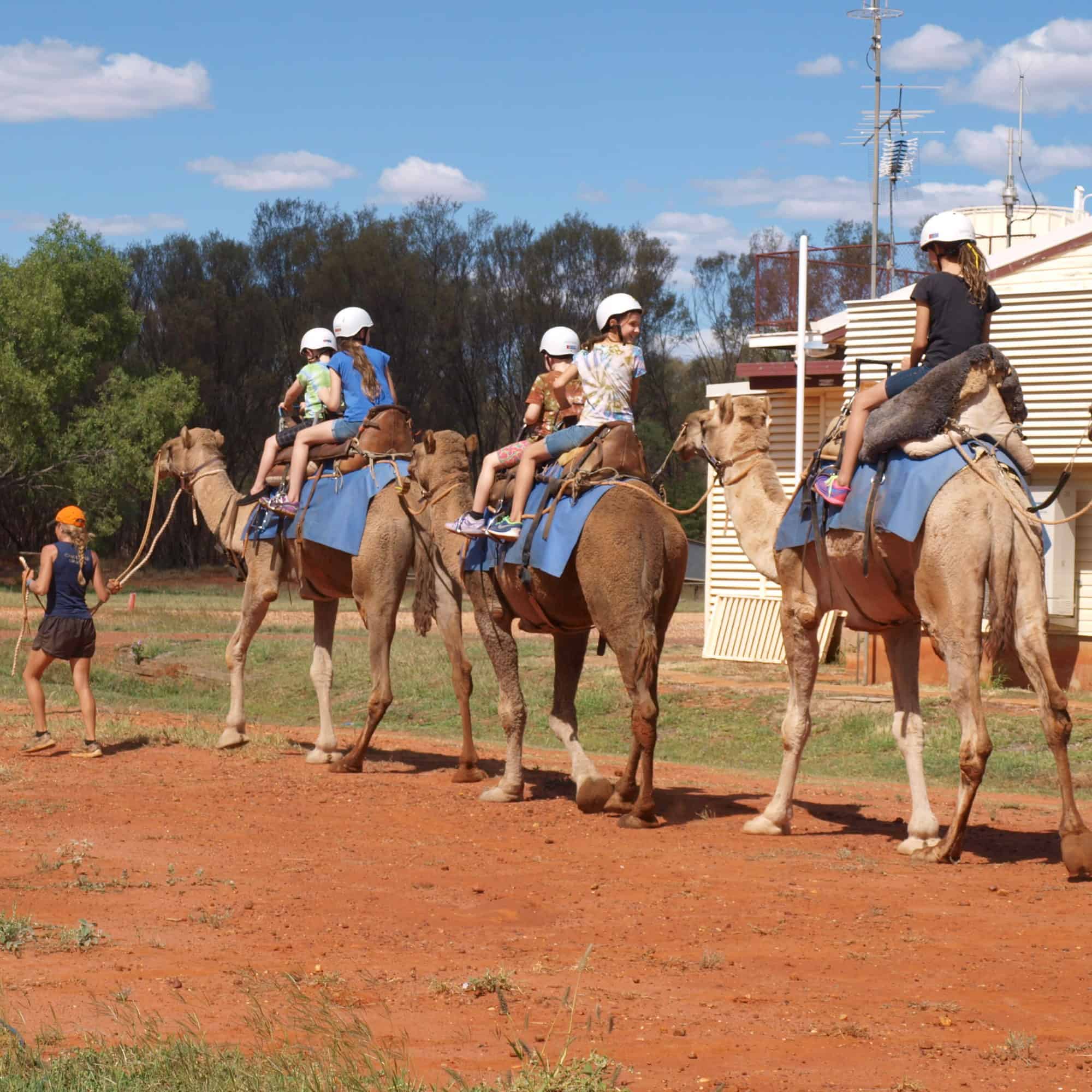
Travelling with Distance Education
This will be the first (and sometimes only) option you’re given by the school. It sounds easy – they’ll do the all organisation and grading, and usually most of the teaching, and you just have to submit the work.
My advice?
Don’t do distance education if you don’t have to.
Yes, that’s blunt. But distance ed, which is basically school at home, can be horrible for travellers. Here’s why.
- You often have to have regular daily internet reception. Portable wi-fi is expensive, and if you’re planning to go anywhere off the major highways you won’t have reception anyway. This limits your travels in so many ways. If you’re having an amazing time at a national park you still have to pack up and get back to town in time for Monday morning’s lesson. Not fun.
- You need to know where you’re going to be to receive regular mail. If you’re happy to stick to a very strict schedule, and positive you won’t deviate from it, this is possible. But again, it severely limits your flexibility. It’ll only take a few times of hanging around a town that has proved to be exceptionally boring yet massively expensive, waiting for your next package to arrive, for this to seem really inconvenient. Some providers will now give you a whole term’s work at a time, which is a great improvement.
- It’s really boring. Honestly, I’ve seen the work, and it can be mind-numbing. After sitting in on a live distance education internet lesson as part of a tour, my children were horrified, and unanimously said they would never do it. It seems to be a guaranteed recipe for frustrated parents clashing with bored and rebellious children.
- Distance ed divorces learning from the adventures you’re having, and makes it much more likely your children will not want to do anything remotely school-ish about your travels. Goodbye family travel journal.
There are definitely positives too – you don’t need to worry about writing a homeschooling plan or being approved, and all the work is provided for you complete with schedules. You can also access teacher help when you need it.
However, I really don’t think that it meshes well with travelling, and many travellers I’ve met have only spent a few months on distance education before becoming frustrated with the limitations and changing to homeschooling.
The following schools will enroll students who are homeschooling while travelling
Brisbane School of Distance Education | Cairns School of Distance Education | Rosny College | Charleville School of Distance Education | Charters Towers School of Distance Education | Finigan School of Distance Education | Longreach School of Distance Education | Capricornia School of Distance Education | Kalgoorlie School of the Air
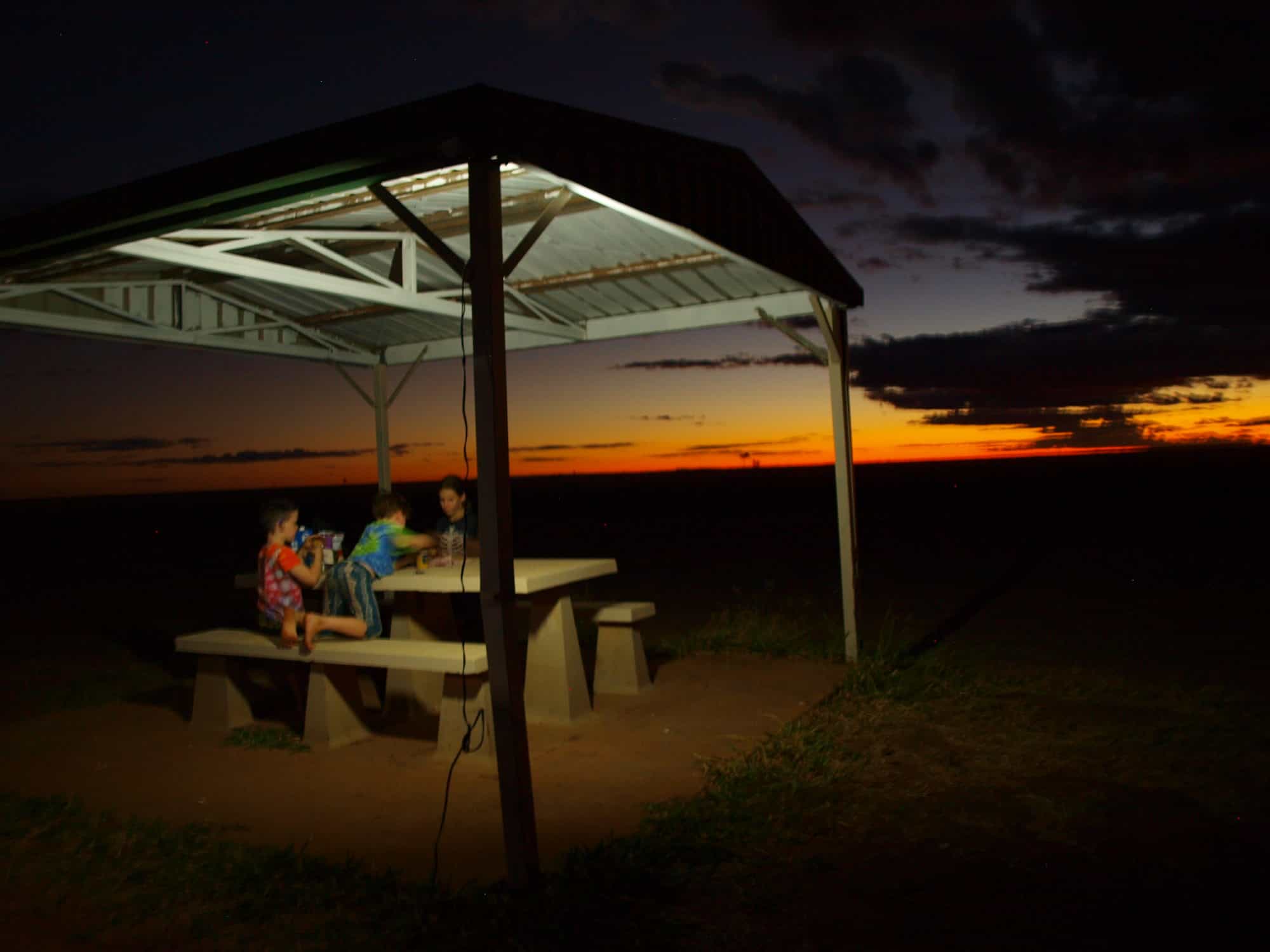
Private Distance Education
There are limited, usually Christian, options that are more flexible (and expensive) and provide a school-at-home experience. With these, you won’t have to think about coming up with a curriculum plan or worry about homeschooling registration. Many will host sports days or camps that you may be able to slot into your travels.
You’ll need to contact each one to find out whether they have any attendance or internet requirements.
These are all religious providers, predominantly using the ACE curriculum.
Groves Christian College | Riverside Christian College | Australian Christian Home Schooling| Accelerate Christian Home Education| Jubilee Christian College | Australian Christian College
Now onto the option that is generally the cheapest and most flexible, but does require you to plan (but you can get lots of help with that – there are 16 workshops all about registration in the Homeschool Rego Bundle).
Homeschooling while Travelling
The Legal Side – Registering to Homeschool
Distance Education does have one advantage – it covers the legal side of things automatically. However, homeschooling is legal everywhere in Australia, and here’s what you have to do to register in each state and territory. You don’t have to register in each state as you pass through, you just have to be registered somewhere. Start by reading about your home state.
Get all the Australian homeschooling registration details in The Ultimate Guide to Homeschooling in Australia
Quick Summary – Most states require you to submit an application, with a plan of what you’re going to do. In some states, someone will meet with you to discuss that plan, then either recommend changes that need to be made to it, or approve the plan.
If they don’t meet with you they review the plan that you send in, and will either approve it or reject it. Approval can last anywhere from 3 – 24 months, but is usually 12 months.
At the end of your homeschool registration period, you’re expected to provide the next year’s plan, plus examples of the work your children have completed (just to prove you haven’t been staring at the wall).
Homeschool registration while travelling is different again, and can be confusing. NSW and NT specifically mention travelling, and state that you are not allowed to homeschool and must enrol in distance education if you intend to travel for longer than a term. Tasmania says you can travel if you intend to return as a permanent resident. Two families from WA have contacted me because WA refused to register them when they were going travelling, and seemed content to have them go unregistered.
Each state’s regulations state that you cannot enrol to homeschool if you aren’t a permanent resident of the state. And if you don’t have a fixed address, you’re not.
For example, this is what the ACT has to say about travelling –
Can I become registered or renew my registration while my family is not residing in the ACT?
No. Home education must be provided from the ACT home base listed on the registration certificate. If you are travelling at the time of registration or renewal you can re-apply for provisional registration on your return to the ACT.
What are you meant to do in the meantime in states other than NT and NSW? Nobody’s really sure. If you’ll only be travelling within your registration period it shouldn’t affect it, but you may find you don’t qualify for registration when your registration expires.
If you’re refused registration or told you’re not eligible keep a record. I know a number of people who have re-registered or enrolled at school after a period of not being registered and they’ve had no issues at all, so don’t fret – they’ll most likely just be happy to have you back in the system.
Remember, registration only gives you formal permission to homeschool – it doesn’t provide work or grading or any assistance. If you’re refused registration you’re not missing out on anything.
Now, let’s get down to writing your plan.
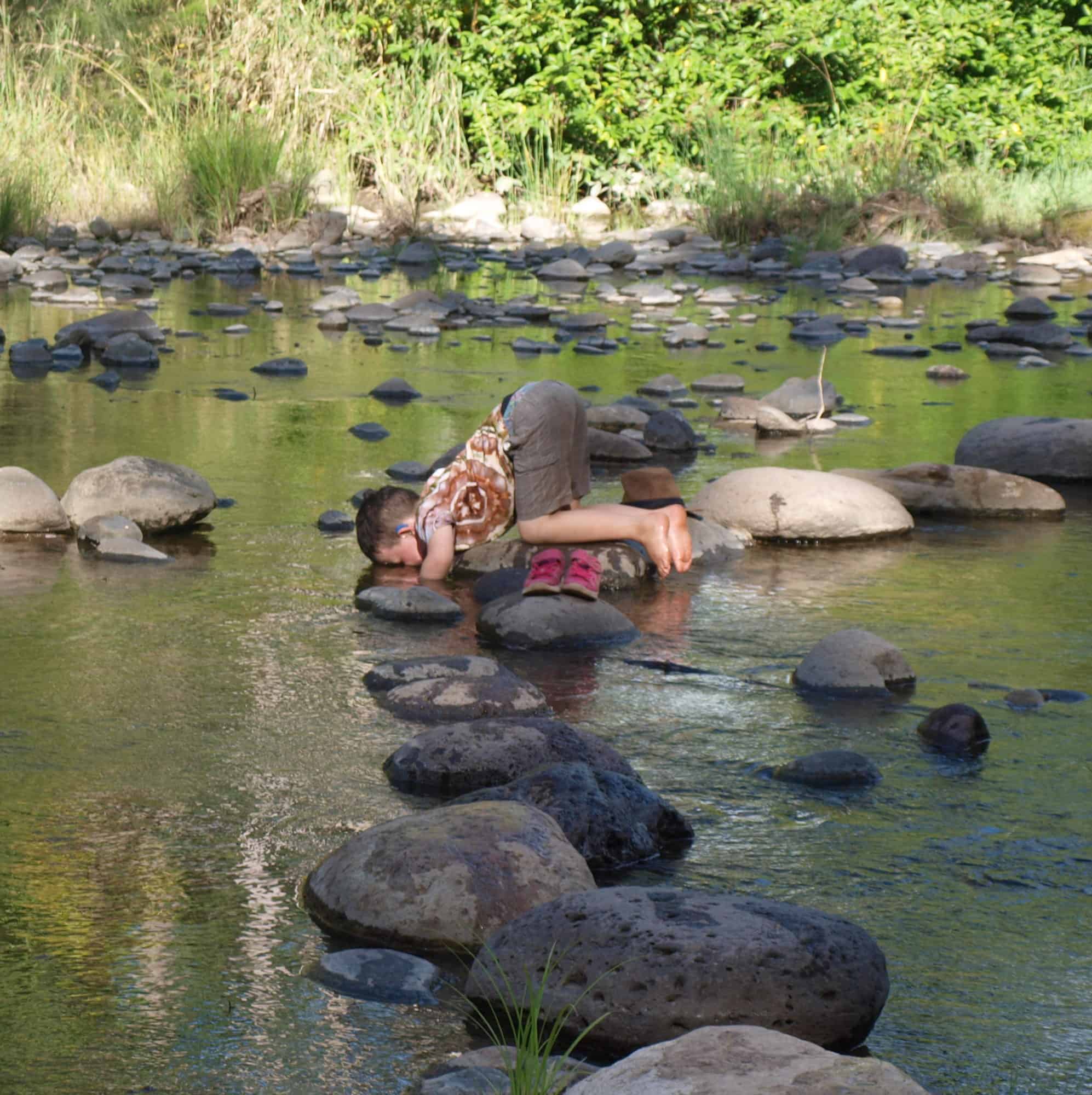
Writing a homeschooling plan for your application
Writing a plan doesn’t have to be a horrible, agonising process. It’s simply to show the authorities that yes, you have thought about this, and how you’re going to help your child learn.
Remember, you don’t have to stick slavishly to the plan – if resources and plans don’t meet your needs you can change them at anytime. No-one will punish you for swapping maths books halfway through!
Stumped by homeschool registration and planning? Check out the Australian Homeschooling Registration Bundle – it contains 16 workshops that will help you write a fantastic plan quickly and easily, with a minimum of stress.
Picking Australian Curriculum approved resources for core subjects can be a great easy way to get your plans done quickly. Your child’s school may be able to recommend resources, and if you’re planning for them to go back to school this will help keep them in line with their peers.
You can then supplement these core resources with activities you plan to do – for example, put a visit to Questacon into the science section, and a visit to the National War Memorial into the history section. Any activity widely accepted as educational will enhance your plan.
Most of the websites listed in the state resources in The Ultimate Guide to Homeschooling in Australia give you guidance and example plans, so make sure you explore your state’s resources thoroughly – or simply ring and ask for assistance.
Now you have your basic plan, it’s time to enhance it with real-life activities.
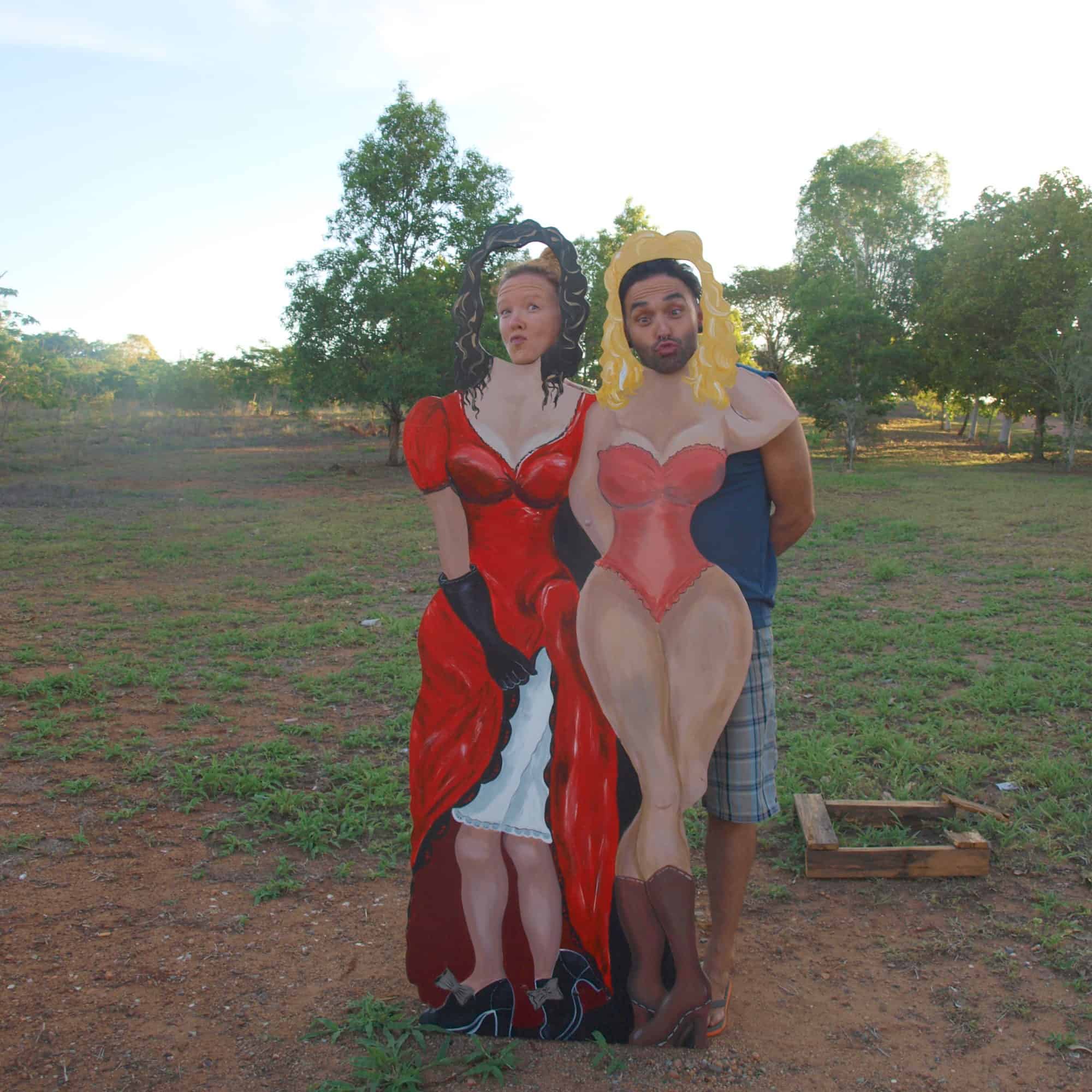
Sign up for my free email course that walks you through beginning to homeschool!
A Travelling Homeschool Curriculum
If you can tie your child’s education to their interests and life and show them the practical applications the learning will stick.
Travelling offers an unbeatable way to do this – as you explore different areas you’ll incidentally learn about history, geography, geology, science, meteorology, natural resources, sociology, politics, economy. If you dig a little bit deeper than the surface you have a curriculum that may not be particularly organised, but ranges far wider and deeper than anything school can provide.
Honestly, as long as they’re covering the basics don’t worry about spending endless hours each week on bookwork. When you’re in fascinating, beautiful areas with dozens of interesting, incidentally educational activities to do no-one wants to do worksheets! Instead, add quality activities to your daily life.
You’ll be surprised how much fun you can have and still be able to categorise it as educational. Here’s ideas for the key learning areas to get you started.
Maths
- Put the kids in charge of your budget for the week
- Ask them to keep a car logbook, and work out your fuel efficiency
- Keep an accommodation tally, noting where you stay each night, the price, and work out averages
- Play board and card games – check out this list for ideas
- Add up the numbers on numberplates while driving
- Take tallies and make graphs of what you encounter – animals sighted, cars and caravans, how many trailers on road trains.
English
- Read quality books, and listen to audiobooks
- Keep a family travel journal or blog
- Memorise Australian poetry and songs. Think Our Country, or The Man from Snowy River – my kids have learnt both of these and more, and I love listening to them recite. So do the grey nomads!
Science
This is so easy to cover when travelling. Physics via riding rollercoasters anyone?
- Learn about the animals, plants, weather and geology of areas.
- Keep a nature journal
- Birdwatch
- Stargaze
- Study chemistry via cooking
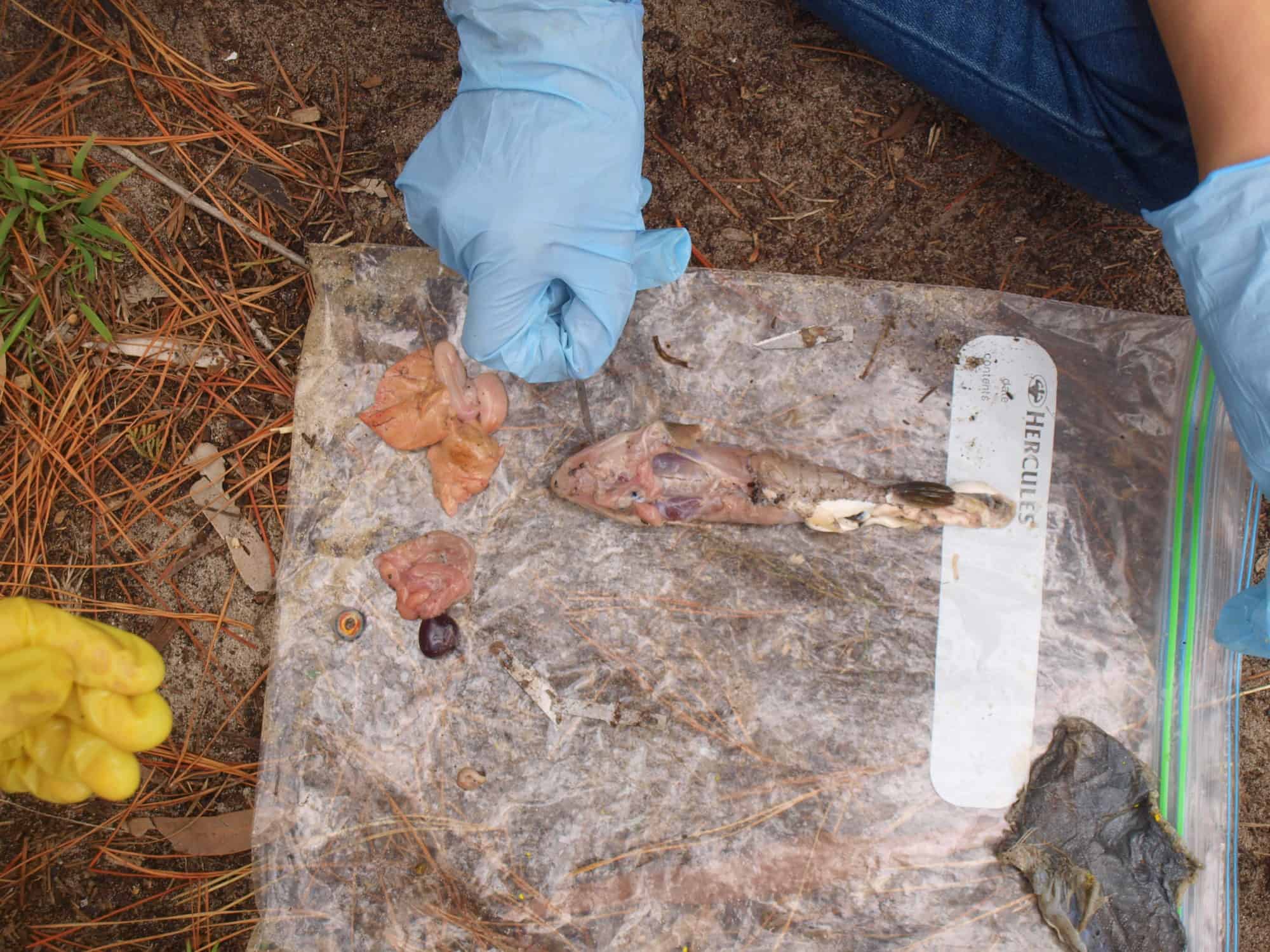
Health and Physical Education
- Learn about nutrition by shopping, meal planning and cooking (and eating).
- The physical opportunities are unlimited – snorkelling, swimming, cycling, hiking. And don’t forget running around playing impromptu games with other travelling kids.
Humanities and Social Sciences
- Geography……..well, that’s easy! Don’t forget physical geography. We love our paper maps that we trace our journeys on.
- History – ditto! Every area has its own history museum, and there are amazing displays in some rather small places.
- Drovers, bushrangers, the gold rush, convicts and crazy explorers – Australia has it all, and it’s easy enough to learn about.
- Keep an Australian timeline or Book of Centuries.
- Social Sciences -what better way to learn about social issues than to see them? Make sure you learn everything you can about Indigenous history, culture and current issues. Learn about the isolated life in the outback and the services needed.
The Arts
- Listen to a range of music and discuss the aspects – genre, singing, instruments
- Visit art galleries, taking advantage of tours and guidebooks
- Take an instrument along if they’re interested – we had to say no to a piano, but we have a violin and a ukulele, and the children have taught themselves with books and free online resources
- Get the kids to reenact historical scenes they’ve shown interest in.
- Play with art mediums – we carry a basic kit of coloured and greylead pencils, a few fineliners, and watercolours. Paint and draw what you see – buildings, flowers and leaves, whatever grabs your child’s interest.
- Use clay you find for ceramics
- Use natural materials for art – collage, model with mud, weave coconut palms etc.
- Go to music festivals and local performances
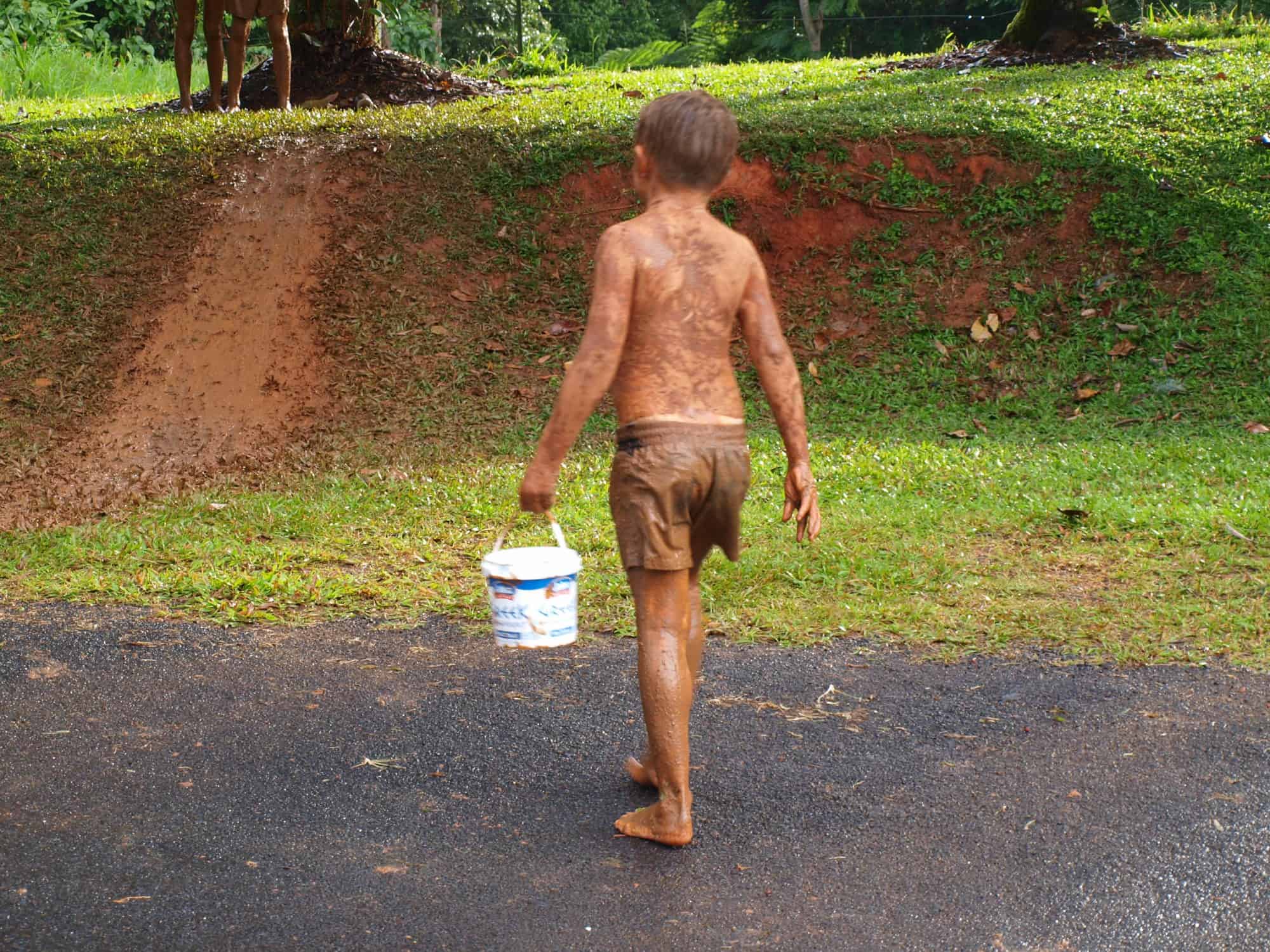
Technologies
- Use them. Considering that the opposite is usually hardest (stopping using them), this is easy.
- Take note of differences in technologies in areas – the lack of internet is rural Australia is very noticeable to those who take high-speed, accessible internet for granted! Ditto for health care, power and water treatment.
- Look at the different ways areas produce food, fibre, and electricity and gas.
- Discuss the sustainability of each of these ways
Languages
Although many school children don’t have the opportunity to learn a second language (two schools I went to didn’t have a LOTE teacher), it’s a core area and a valuable one. This one’s a bit tricky to tie in with Australian travel as we’re essentially monolingual, but here are some ideas.
- Auslan (Australian Sign Language) is so much fun, and youll meet people you can practice with. Learning songs is a great way to pick up vocabulary. I’ve laminated song instructions and keep them in the car. There’s also plenty of Auslan songs on YouTube that can be learnt with the aid of an Auslan dictionary. Plus there’s a great free Auslan series here from Asphyxia! Or choose a foreign language, and do it as a family. MOOCs are great for this.
- Buy a child’s picture vocabulary book in your chosen language and learn the names of everything you have. Label them (our toilet was labelled ‘latrina’ for months).
- Play games where the kids need to answer a question about that language before they get their dinner / shoes
Extra tips and tricks
If that’s not enough for you, here’s some extra travel-specific homeschooling tips!
Information centres
Visit the information centre in each area and you’ll be able to collect most of what you need for a thorough education – they usually contain information about the geological and human history, flora and fauna, and notable citizens. The maps, pamphlets and other resources are great for journaling. It’s also the easiest way to find out what there is to do in an area and plan your time accordingly.
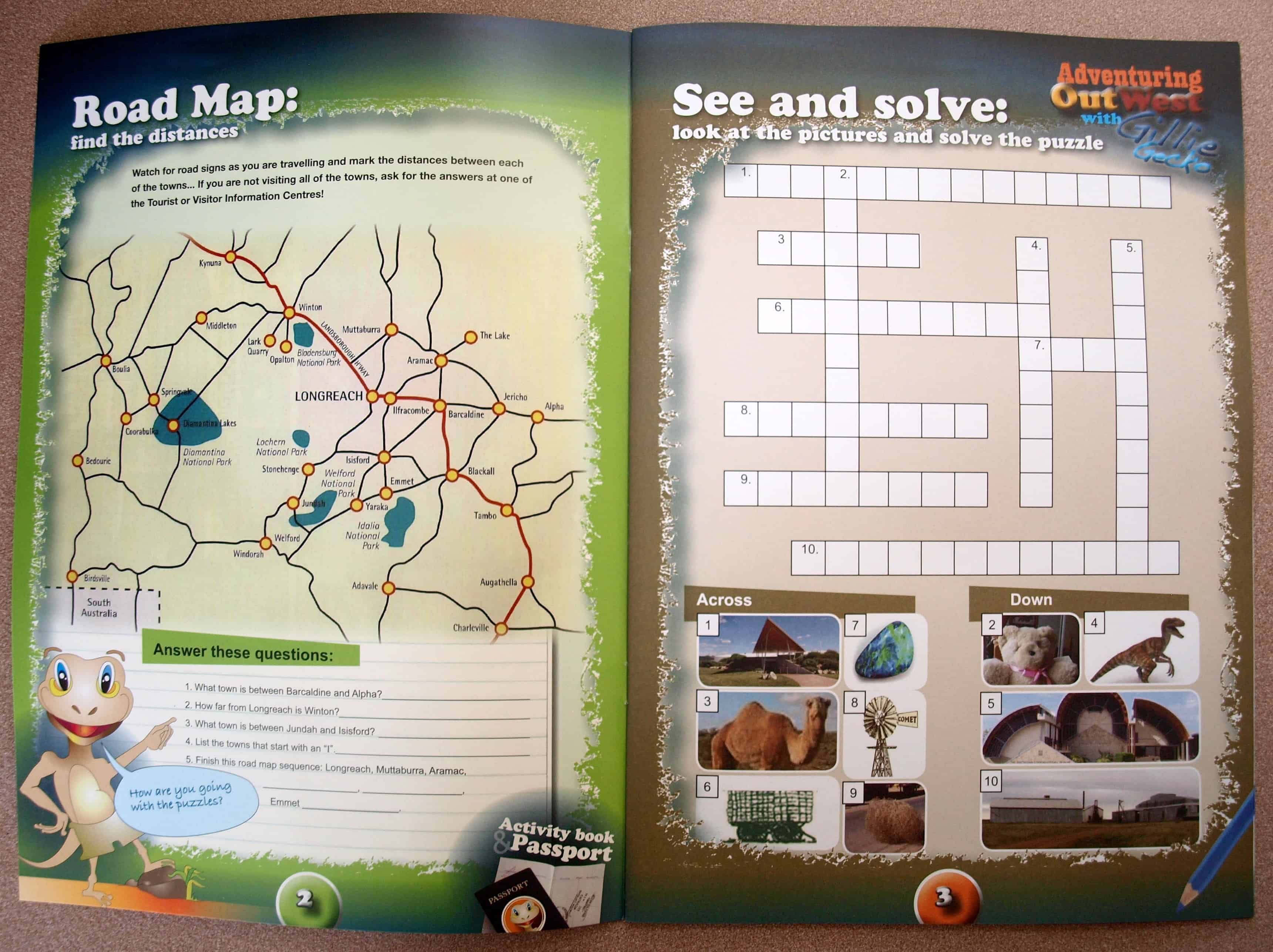
Homeschooling groups
Many homeschooling groups will be happy for you come along to their outings if you’re in an area for a while. They can provide a fun day out, give your kids a horde of other kids to play with, give you other parents to chat to who are also homeschooling, and introduce to you an area in a way that only locals can.
The best way to find local groups? Definitely Facebook.
Try searching for the town + homeschooling. If that doesn’t bring anything up then try other terms that the area is known by – for example, Far North Queensland for Cairns, or Limestone Coast for Mount Gambier.
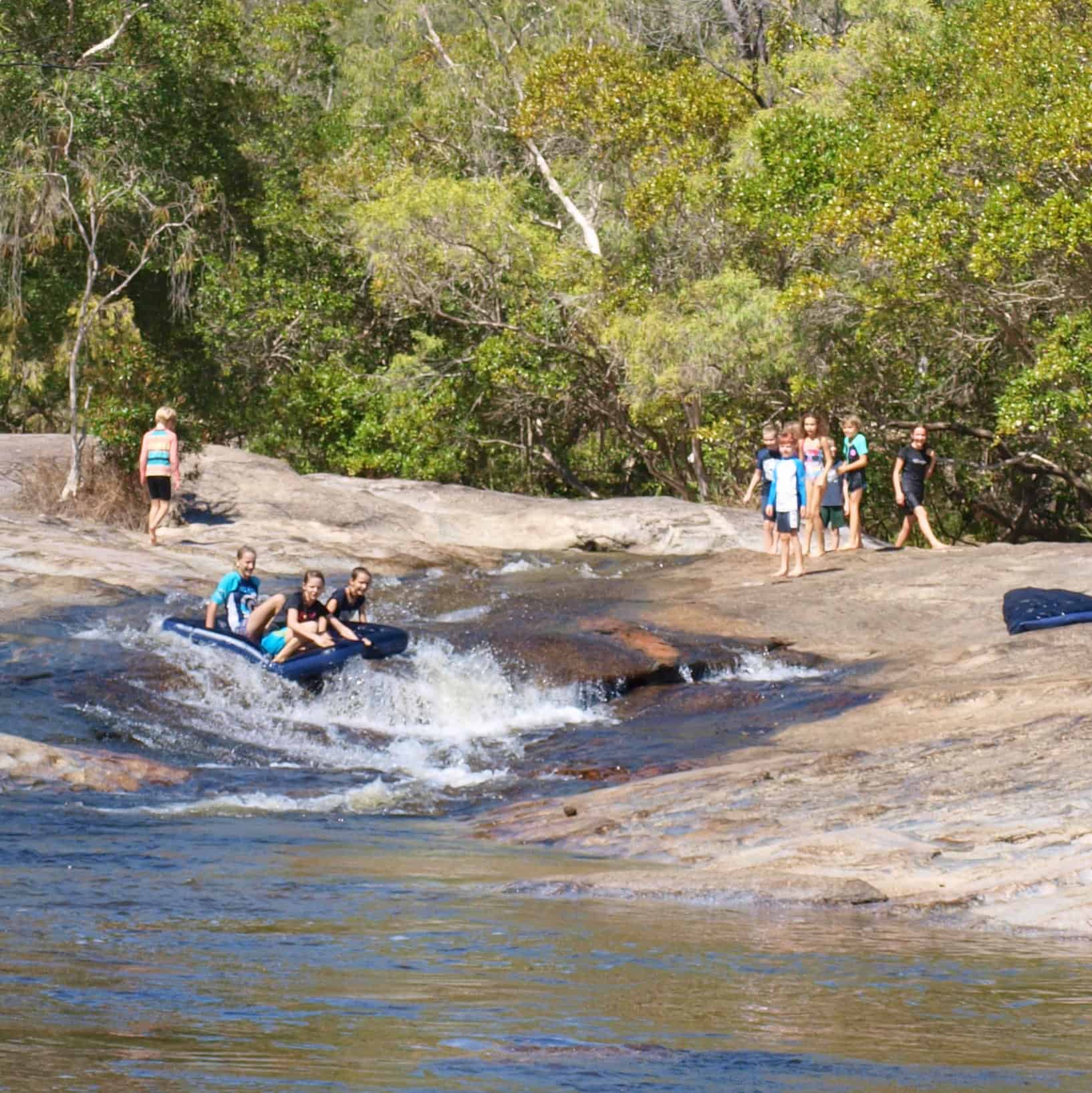
Carschooling
Australia is a big country, with lots of empty space – you’ll be spending a lot of time in the car. In the car you have a captive audience, so make the most of it.
Audiobooks are wonderful, and it’s so easy to download classic stories and listen to them as a family. It’s even free through most libraries via BorrowBox and Libby. Honestly, we’ve reached the end of a 500km trip and had the kids complain about getting OUT of the car because we’re at a riveting part of the story!
As mentioned earlier, we have laminated pages with Auslan songs and poetry to memorise, plus travel games and boredom busters. The kids will also pack what they want to take on that trip – card games, craft projects etc.
What we DON’T have is electronic babysitters. No iPads, no DVD players, no phones. If you’re convinced you HAVE to have them for your sanity (you really don’t) then please make sure you fill them with quality options – documentaries, ebooks etc. Yes, children really do find all that stuff insanely interesting once they develop a taste for it – help them develop that taste.
If you need more ideas, there’s even a book specifically about carschooling. Enjoy!
What about homeschooling high school?
Personally, I think homeschooling older kids is great. Preschool and early primary can be so boring as you go over and over (AND OVER) basic skills. After teaching my five children to read I never want to do it again. But teens are so much fun to work with! They’re doing work at a level that interests and challenges me, and they’re very independent – they generally just need me to help them find resources and to lend a helping hand.
Worried you can’t teach your kids something because you don’t know it? It doesn’t matter, there’s always a way to learn. The ability to teach yourself new things is an invaluable skill, and one that will be useful for their whole life. Help them find quality resources, help them learn to use them, and be around to bounce off ideas and listen to discussions.
MOOCs (Massive Open Online Courses) are online courses typically provided by universities. They’re wonderful, and they’re FREE! My girls have done courses about anatomy and physiology, ancient history and archaeology, and Spanish.
You can even start early on university – as young as 13.
As I mentioned earlier, my three eldest all started university at 17 after never going to school or getting an ATAR. It can be done quite easily – check out my homeschooling to university guide for lots of pathways and real-life stories.
Strengthening weak areas
Nothing beats one-to-one tutoring.
If you know your child is struggling in a certain area, travelling provides a great opportunity to help them master it. It doesn’t matter if you haven’t mastered the subject yourself – one of the myths of modern education is that you need to be an expert to teach anything. Learning alongside your children can be just as much help, and an awful lot of fun.
Find videos and tutorials online that cover the skill they’re struggling with (Khan Academy is great), buy a few basic workbooks, and help them combat their problems. They’ll feel so much more confident when they reach the a-ha moment and can confidently do tasks they once struggled with, and it will empower them to teach themselves.
Sign up for my free email course that walks you through beginning to homeschool!
And I think that really should do it. I hope you now feel inspired and empowered to take charge of your child’s education. Travelling really is a wonderful lifestyle, the learning and experience you will all gain on it is invaluable and I hope you take the big step and have a wonderful time!
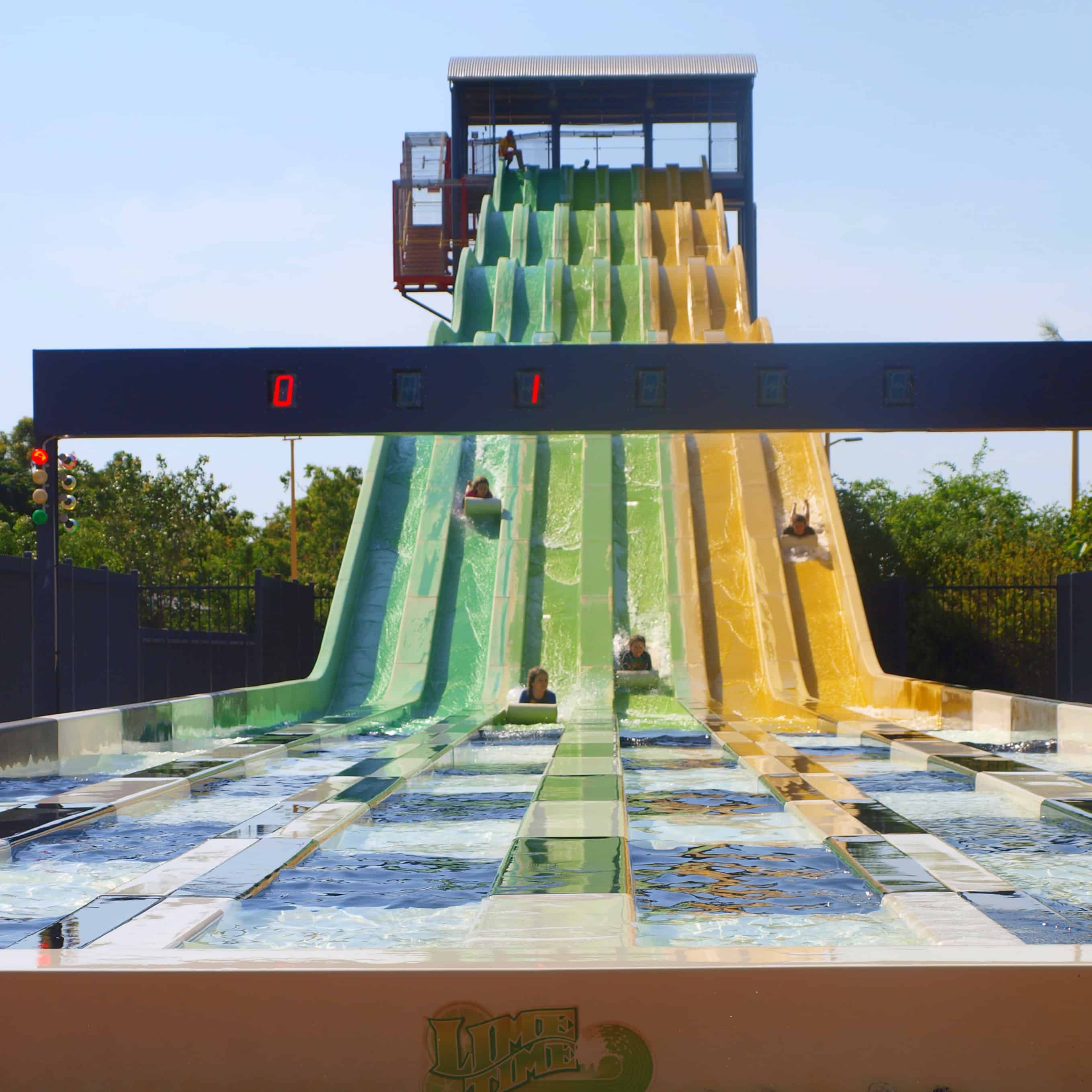

Excellent / very helpful – thank you!
Glad you found it of use Jacinta!
This is so great, we have been on the fence about travelling with our 4 but honestly this has pushed me over the line!!
Great to hear Jacinta, have a fantastic time!
If you have a wonderful relationship with your school and teachers and you wish to keep your children enrolled in their ‘normal’ school, and are planning to return once your children have finished travelling, here is the way we worked around home-schooling on the road with the help of our class teacher and the internet resource ‘StudyLadder” ($88 per year):
Our child’s school used core textbooks for English (spelling and grammar), Science and Maths. We, as parents had already purchased them, so they were ours. Rather than ask/expect the teacher to spend an endless amount of time and resources photocopying pages from books for us to use over the next 8 months, we took the core texts with us.
Each week the teacher would email us her weekly plan for the class. This is a bare-bones outline of what the class was doing that week. Subject areas had a brief outline of what topic and matching pages for core texts. Using her weekly planning guide, it was easy to introduce the same activities the class was doing back home – oral activities in the car “words with ‘ou’ and ‘oy” and follow up with the same core text pages her classmates were also doing. Write a narrative – a quick google on the procedure for writing a narrative and off we would go. We had a scanner, so sending some of the work back every few weeks so the teacher could store work samples and see progress was easy. Back in class, the kids were carrying 10s in maths? It was easy to find the StudyLadder explanation and matching activities when we got in range of the internet and then also completed the activities in the class core text. Science was sinking and floating? We made something up and found a complementary lesson on Studyladder when we had time. Social Studies was an Aboriginal Heritage unit? That can wait until we reach Arnhem Land. Right now we are in QLD and we are learning about the cane sugar industry. It was a practical and flexible way to teach and learn; we were not stressed, the school was not stressed and our child was happily being educated and keeping up with her classmates in about what worked out to be less that three hours per week of sit-down learning/writing a week. We journalled and read books each night, also, almost without exception.
Asking for a weekly plan to be emailed once a week was no extra work for our teacher. Asking her to spend hours in front of a photocopier making up packages of work that may or not even be used by families on the road is big expectation. No wonder so many schools handball parents straight onto Distance Ed. A teacher’s weekly plan is not filled with comprehensive instructions, more usually dot points of the activity and what outcomes she was hoping to achieve. A lot of abbreviations that were easily understandable. We did our best to keep up with important concepts and changed and modified activities to suit our circumstances. As we were returning to the same class before the end of the year, it was in the teacher’s best interests to have our child keep up with the class. Having access to her weekly plan ensured we kept up and still allowed us a lot of leeway for incidental learning that cropped up while travelling.
Thankyou so much for sharing Marie. It’s invaluable to be able to hear how others have actually done it, and your system sounds great-i’m sure others will find it useful when approaching their school.
When I was a child my mom did the same approach what you said here. I was the in charge of shopping. I sort out the balance and sometimes I get extra money too. Great tactics like your approach.
Thanks very much Dina-there’s no better way to learn about life than actually living it!
What a great resource! There is so much helpful information here. We are about to head out on another month long road trip through Europe. The best education is what we will see and do!
Oh wow, Europe! The history, the architecture and the FOOD – have fun Dianne, although i’m sure it’s virtually guaranteed.
Thanks for all this info. And well done for homeschooling your 5 children, awesome effort 🙂
You’re welcome Tracy, and thankyou 🙂
You are forgetting one point. Not even registering. Most people don’t know about it. 3 years on the road and we follow our kids interests. They 8-11 years old speak/read English and French and do their own math. No journal unless they want to have one as they don’t like it and was always a battle. By law you need to provide an address to register for homeschooling or distance Ed. No address no need to register. That’s the easiest way and the least stressful.
Well, I am running a business here, I can’t really recommend people break the law!
I read your article and was so excited to home school while we travelled and then you say Nsw doesn’t allow it… is there a work around? Can I register while at home and then just take it on the road?
Hi Lara, NSW does say you have to do distance ed. However, if you’re not keeping an address in NSW then you can register in whichever state you’re keeping an address in – many people use a relative in Vic or QLD as their mailing address, and have their homeschooling registration at that address too. Hope that helps!
Can I travel forever with my kids? Never go back to an address? And if so how does that work if I have no address and we live no where except all over Australia for the rest of our lives?
Hi Marli, yes you can! But you do need an address for most things, not just homeschooling. Stuff like car insurance, banking details, and Family Tax Benefit all require an address. Most people use the address of a family member, we’ve done this for the last decade and it works just fine for us. Good luck!
Great article – thank you! We leave in April for a 12-18 month trip and i’m currently struggling with how to continue schooling. My kids current Catholic school wont allow for remote learning so we need to leave the school once we head off on our trip. I’ve been told that NESA is unlikely to approve us for home schooling while travelling and that distance education is the only option however that requires zooming into classes each day which is not the flexibility we were hoping for. It’s quite disheartening really because I want the best for my kids and that involves continuing with their education yet the government is making that difficult. Thank you again for your tips!
Hi Kelly
I’m in WA, can we travel outside of Australia for an extended time and still homeschool? My child is year 11 this year. I’ve never home schooled before 😅
Also, I’ve read that kids that are homeschooled (WA) will not receive their year 12 certificate? Would you know any th ing about this?
Short answer, yes. You just do the same as you would anyway, whether they accept your registration or not! If you’re not going to be in the state they may not accept your registration application – just keep a record.
You won’t get a Year 12 certificate anyway, as far as I know – the only way to get one is to go to school or do distance ed. However there are lots of other ways to get into further ed.
https://fearlesshomeschool.com/homeschool-to-university-australia/